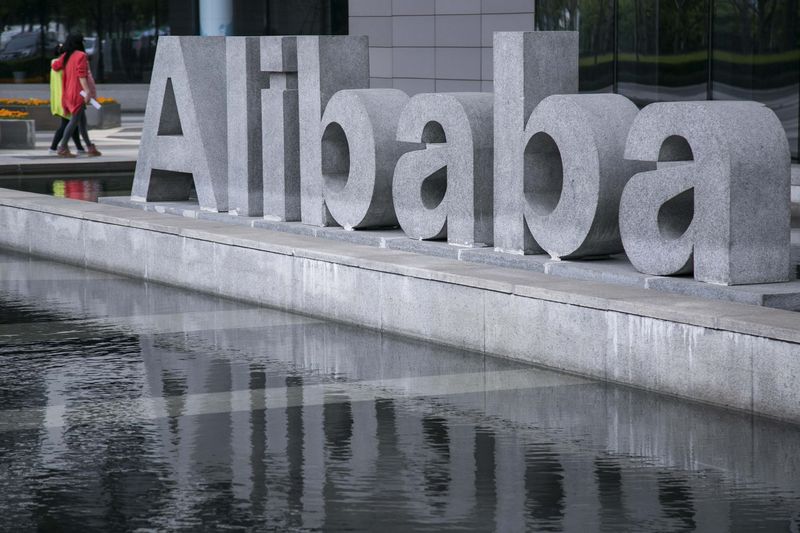By Casey Hall, Roushni Nair and Rishav Chatterjee
(Reuters) -Alibaba Group said on Tuesday it would sell its Chinese department store unit Intime and book a $1.3 billion loss from the deal, as the retail giant reshuffles its business portfolio to focus on its core e-commerce operation.
The sale marks a further acceleration of Alibaba (NYSE:)’s restructuring after the group split into six business units last year in its biggest-ever revamp and announced a series of top management reshuffles afterwards.
The company last month unveiled a plan to integrate its domestic Chinese and international e-commerce platforms into a single business unit run by one leader for the first time, as it faces growing competition from discount-heavy retailers at home and abroad.
Rival platforms such as PDD Holdings’ Pinduoduo (NASDAQ:) and Temu, along with ByteDance’s Douyin and TikTok, have stepped up competition with Alibaba by targeting cost-conscious shoppers with rock-bottom prices on everything from headphones to sweaters.
China’s challenging consumer environment has put pressure on all retailers and e-commerce platforms.
“I think in the short term Alibaba just doesn’t have the attention to actually do offline retail and do it well,” said Jianggan Li, founder and CEO of Momentum Works, a venture and insights firm, though “finding the right buyer at the right price” for offline assets remains a challenge.
Alibaba said on Tuesday it would sell Intime to a consortium comprising Youngor Fashion and members of Intime’s management team for 7.4 billion yuan ($1.02 billion), subject to customary regulatory approvals.
Alibaba purchased Intime in 2017 in a $2.6 billion deal to expand into the bricks-and-mortar retail segment and currently holds a 99% stake in the business.
The e-commerce giant has been looking to sell a number of consumer sector assets, including Intime, grocery business Freshippo and retailer RT-Mart to focus on its core business, Reuters reported in February.
At the time, Alibaba Chairman Joe Tsai told analysts that while it made sense to exit the businesses, challenging market conditions meant it would take time.
Alibaba, under former boss Daniel Zhang, expanded its presence in the retail sector by taking over several brick-and-mortar chains, including electronics retailer Suning and hypermarket operator Sun Art Retail, which runs RT-Mart.
The once vaunted “New Retail” model, a term coined by Alibaba co-founder Jack Ma, was meant to offer the best of both e-commerce and brick-and-mortar but also featured higher rents and labour costs than pure e-commerce, and the expense of integrating complex systems.
In April, Ma expressed support for the internet giant’s restructuring efforts, and acknowledged past mistakes in a lengthy memo to employees.
($1 = 7.2841 renminbi)
